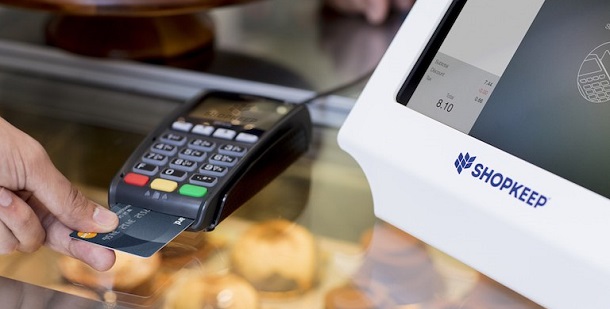
It is not uncommon for small to medium businesses to experience cash flow problems, especially when they have a number of outstanding invoices waiting to be paid. Large enterprises are notorious for making late payments to smaller companies, and for entrepreneurs and new businesses, it can cause real problems.
If you find yourself struggling to keep your business afloat because of outstanding invoices but are hesitant to take out a loan or other finance, then invoice factoring could be the answer you’ve been looking for.
Invoice factoring can speed up your cash flow and help you out with funding when you need it the most. However, it comes with its downsides as well as benefits. It is essential to properly understand what invoice factoring is, how it works and what the advantages and disadvantages are before deciding if it is the right solution for your business. This expert guide covers everything you need to know about raising finance from your invoices.
What Is Invoice Factoring?
Invoice factoring is a financial service that is available to any businesses that does a lot of trade with other companies and issues a large amount of B2B invoices. It provides short-term funding in exchange for selling and assigning invoices to a factor.
The factor you choose will give you an advance of a percentage amount of the invoice value. Once the invoice has been settled, the provider will pay out the remaining percentage minus any payable fees. With invoice factoring, you can often release up to 95% of your invoice value immediately, making it an excellent option for boosting cash low quickly.
The invoice factoring company will be left to collect the debt incurred on the invoice, which does mean your customers will deal with them for paying their invoices. Some businesses are not keen to hand over the communication with their customers to another company, as they can sometimes be more aggressive with chasing debts than you may like.
As a business financing solution, invoice factoring can be a great option for bridging gaps in cash flow. It can be used for raising funds to invest in new equipment, take on new business, hire talent or any other business growth activities.
As the money obtained through invoice factoring is owed to you already, it isn’t the same as borrowing from a bank or other financial company where you must pay off your debt regularly. Instead, it is like transferring your customer’s debt to you, onto the invoice factoring company, so that your business has the cash free to use straight away.
Invoice factoring can be used to raise funding for investments in new equipment, take on new business, hire new talent or any other business growth activities. It can also be used to pay off your own debts to other companies if you are experiencing cash flow problems.
How Does Invoice Factoring Work?
Invoice factoring is popular among many small businesses because it works by advancing the money that you have already earned. There is no need to present a full business plan to a lender, you are not required to pass a credit check, and there are no additional hoops to jump through that you may find with traditional lending.
These requirements have often made it difficult for new and small businesses to obtain any kind of funding, as they may not have any kind of credit rating or records of their recent accounts. Invoice factoring doesn’t need any of this, because the money is already owed to you by your clients.
It is simply a way you can collect on your invoices immediately, without having to wait 30, 60 or 90 days for your clients to pay you.
What Happens With Invoice Factoring?
Invoice factoring usually works by you entering into an agreement with a factoring company, whereby they will manage all your sales ledger and credit control on your behalf. This usually lasts for a fixed period of time, and most factoring contracts continue for 24 months.
While the factoring company is managing your books, they will advance some of the funds up front when you send an invoice to a customer. The amount they advance you will vary, but is typically between 70% to 85%, but could be up to 95% with some factoring companies.
When the customer pays your invoice, the factoring company collects the debt and then pays you the remaining balance, minus their fees. Every factoring company will take some type of charge for using their services, and this is often a small percentage of the invoice amount.
Lenders will see invoice factoring as a low-risk finance option because they have full control of ensuring your customers pay on time, and they are only lending money that you have already earned and are owed by customers. This often makes it easy to obtain, even for businesses with challenging circumstances.
Who Can Use Invoice Factoring?
Any business that regularly invoices clients for substantial amounts of money can make use of invoice factoring. It is generally designed for businesses that are in need of consistent cash flow, and who invoice B2B customers on a regular basis, sometimes with long payment terms.
When you choose to use invoice factoring, you will need to be prepared to bring another partner into your business that will take care of your accounts receivable management and your collections process. This can mean giving up some customer control, as your factoring company will have to have contact with your customers to obtain payments.
Invoice factoring is a solution to release working capital for businesses of various sizes and ages. All you really need to have is qualifying invoices to be able to start using invoice factoring. Many factoring companies will work closely with start-ups to large, well-established businesses.
Every factoring company will have slightly different requirements for invoices to qualify, but in general, they should be payable within 90 days and issued to companies that have no serious tax problems and have been in business for over two years.v
Invoice factoring and lenders can vary significantly. Some will specialise in lending against long-term invoices with payment terms of 90 to 120 days, while others specialise in larger or smaller borrowing limits.
How Much Does Invoice Factoring Cost?
Unlike with some borrowing facilities, invoice factoring does not work solely on an interest-only basis. Instead, factoring companies will charge fees on the invoices they advance as well as a factor rate for using their services. In most cases, the cost of invoice factoring depends on two different things:
- 1. The factor rate: The factor rate is the primary cost of borrowing cash from the lender, and it is usually charged on a monthly or weekly basis. This fee will vary between factoring companies but can be anywhere between 0.5% and 5% of the total invoice value per month.
- 2. Length of factoring period: The length of factoring period is the time it takes your customer to settle the invoice. As the factor rates are charged at regular intervals, usually weekly or monthly, the length of time it takes for your customer to pay the invoice will have an impact on the final cost of your invoice factoring.
- Origination fees: When you set up a new factoring relationship with a lender, they may charge you for setting up your account. These are upfront costs that would be up to £1,000 with some companies.
- Incremental fees: If you have a factoring agreement where the factor fee is a flat rate, then you could also be charged an incremental cost. This increases the amount paid to the factor as an invoice ages and can vary anywhere between 0.35% and 1% of the invoice value.
- Service fees: Some factoring companies might also charge you service fees or lockbox fees. A lockbox is a designed account for your customers to pay the factored invoices into, and the cost for this can be anywhere between £50 to £500 a month.
- Collection fees: If the factoring company has to chase your customer for payment of overdue invoices, they may charge you collection fees for their efforts. This varies significantly between lenders, some may charge a flat fee for every amount that goes overdue, and these can be very high depending on the factor.
- Unused line fees: If you have an unused portion of a factoring facility for a given month then you might be charged remaining line fees for this. Typically, this is charged as a percentage and can range from 0.15% to 0.5%.
- Monthly minimum volume fees: If you do not generate a certain level of fees for your factor in any given month then you might be charged a monthly minimum volume fee.
- Renewal fees: Some companies will charge annual renewal fees for every full year the line is open, and this could be anywhere up to 1% of the total factoring facility size.
Some lenders will use a tiered system for their factor rates, so the more your factor within one month, the lower your factor rate will be.
Some invoice factoring companies will charge additional fees on top of their regular factor rates. These are often hidden costs that you need to watch carefully for when choosing which factoring company to go with. The main additional fees to look for are:
Invoice factoring has a lot of hidden fees associated with it, and to make sure you know exactly what you are going to pay you should always ask every potential factor company for a full breakdown of all their fees. Compare a few different invoice factoring proposals before making a final decision.
What Is The Difference Between Invoice Factoring And Invoice Discounting?
While looking into invoice factoring options, you might also come across invoice discounting. Invoice discounting is also a cash flow solution, specifically designed to free up funds for your business; just like invoice factoring.
Factoring is when your business can effectively sell the ownership of a specific invoice and the rights to the money due under its terms to a lender. Discounting is very similar to factoring and involves most of the same features and benefits. However, it is a completely confidential process.
This means that your customers being issued invoices are not aware or informed that your company is outsourcing its payment collection to a factor. Some companies see confidentiality is a very important feature and will choose discounting over factoring for this reason.
Invoice discounting requires your business to pursue your customers for payment of invoices, unlike with invoice factoring where the lender does this. Many companies do not want the hassle of chasing for their payments, and so choose invoice factoring as it is simpler to operate.
Discounting often has lower charges and fees involved compared with factoring, because the discounting company doesn’t have to manage and chase the invoices themselves.
If you are unsure if invoice factoring or invoice discounting is the right choice for your business, seek independent financial advice to explore all of your options. A financial advisor will be able to look at your situation and offer advice on which financing option is best for you.
Six Advantages Of Invoice Factoring
Invoice factoring is a popular choice for businesses of all sizes that need to release funds from their outstanding invoices quickly. Before deciding if invoice factoring is the right choice for your company, consider the benefits and drawbacks carefully. The main six advantages of invoice factoring are:
- 1. No credit checks: There is no need for lenders to run any credit checks on your company when you choose invoice factoring. Your customer’s creditworthiness is actually more important than your own when it comes to factoring. This means that businesses with poor credit ratings can access financing easily.
- 2. Work with experts: Invoice factoring can give you the chance to work and develop relationships with experts in their fields. An invoice factoring company specialises in managing sales ledgers and credit control, and their accounts receivable management techniques are going to be of a high standard.
- 3. Quick cash: Invoice factoring is a quick way of releasing money when your business needs it the most. Typically, with invoice factoring, you can be approved in less than seven days, and funds can be released in one to three days.
- 4. More time: When you have an invoicing factoring company on hand to take care of your sales ledger and chasing payments, you will have much more free time to focus on what really matters to your business.
- 5. Due diligence: An invoice factoring company will often conduct due diligence and credit checks on new customers, which will reduce your risk of not receiving payments.
- 6. Immediate revenue: The money tied up in your invoices is cash that you have already earned, and invoice factoring gives you the ability to put this money into your business immediately instead of having to wait weeks or even months to collect payment.
When choosing an invoice factoring company, be sure to find out exactly what happens in every possible situation. For example, ask what the arrangement will be if a customer doesn’t pay an invoice on time or files for bankruptcy. You should make sure you properly understand your responsibilities and what will be taken care of by the factor.
Four Disadvantages Of Invoice Factoring
As with any type of finance product, invoice factoring has its downsides as well as its benefits. It is vital that you fully understand all the drawbacks of invoice factoring before deciding if it is the right choice for your business. The disadvantages of invoice factoring are:
- 1. Customer contact: Most invoice factoring companies will take responsibility for contacting your customers on your behalf. However, this level of interaction can vary depending on the lender. Some factors may be more aggressive than you would like when chasing your customers for payment, and you need to decide if you are happy for them to converse with your clients on your behalf.
- 2. Expensive fees: Invoice factoring comes with a huge range of different prices and charges that can be very confusing to understand. Every provider will charge different factor rates and additional fees, and these can add up to be very costly to your business.
- 3. Invoice is sold: When you use invoice factoring, you are selling or assigning your invoices to the factoring company. While this does give you immediate cash or your business, it also means you are giving up some control.
- 4. No privacy: Invoice factoring will mean that your customers will be made aware that you are using a factoring company to handle your invoices and sales ledger. If you want more privacy and do not want your customers to know you are factoring your invoices, then invoice discounting might be a better option.
There are hundreds of companies out there offering invoice factoring for businesses, be sure to shop around and compare a few different options to make sure you are getting the best deal.






